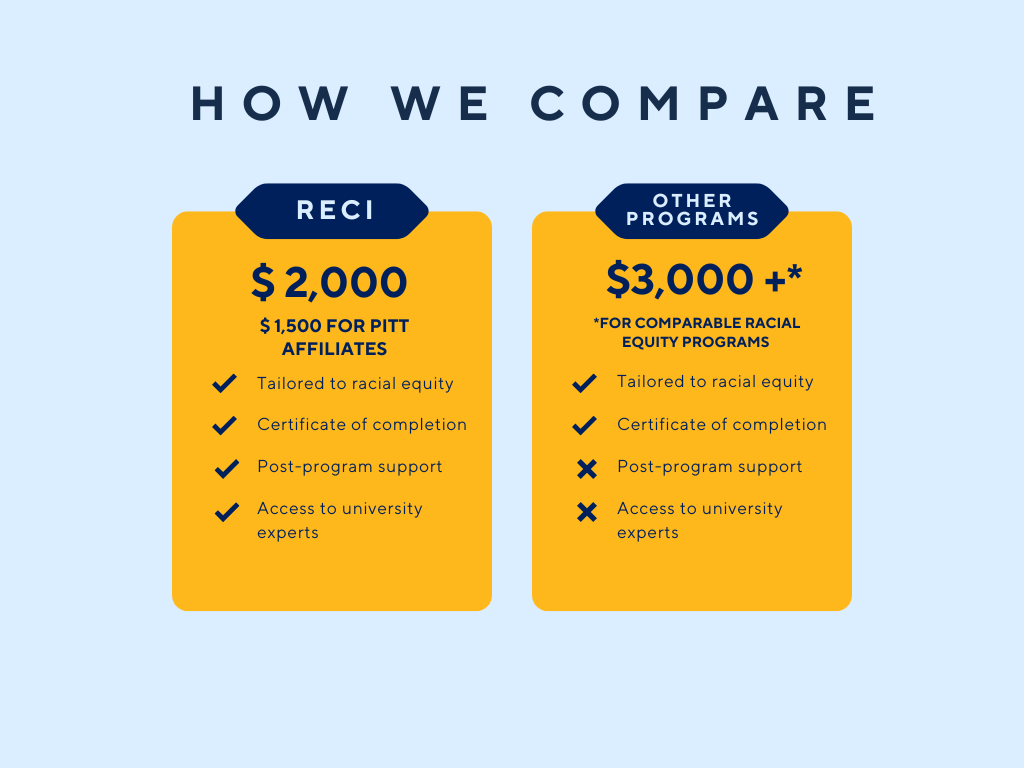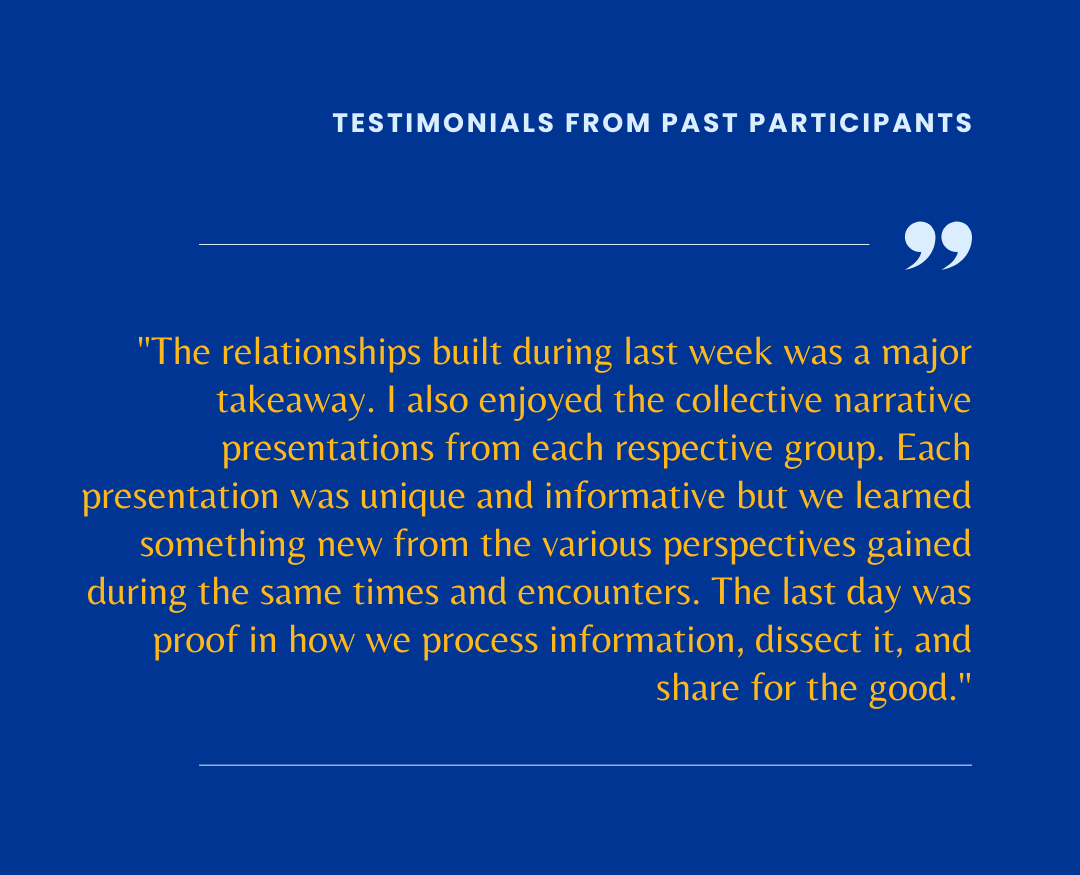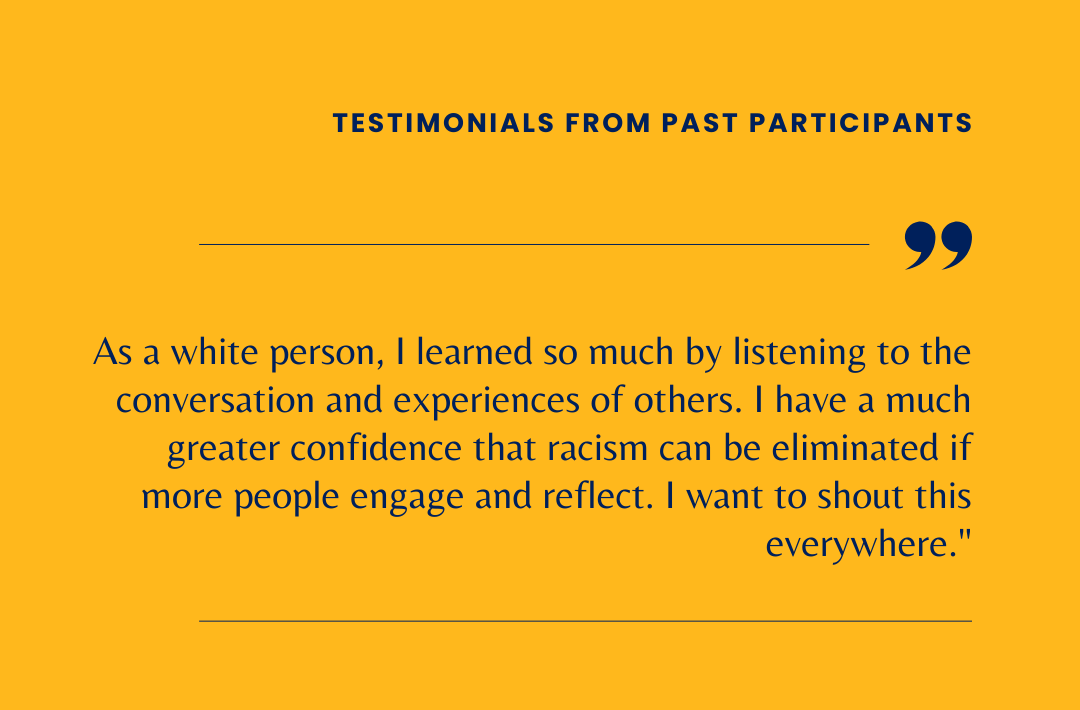POSTPONED FOR SUMMER 2025
After deep reflection and honest assessment of our current landscape—including team capacity, program readiness, and external conditions—we’ve decided to pause the full public rollout of the PCP for this year. This decision was not made lightly, but with long-term impact in mind.
Instead, we are excited to pilot the program with a smaller cohort—led and shaped by our trusted Facilitators Academy Alumni. This shift will allow us to:
- Pressure-test and refine the curriculum,
- Integrate meaningful facilitator feedback into program design,
- Honor the care and thoughtfulness this work requires,
- And position the PCP for a strong, sustainable public launch next year.
We want to be clear: this is not a step back. It’s a step toward building something excellent—together.
We also want to affirm that this pivot isn’t a result of anything lacking within the team or the program. Rather, it’s an acknowledgment that launching a high-impact, equity-centered offering requires the right timing, readiness, and strategy. We are choosing intentionality over urgency.
We encourage you to subscribe to our Center on Race and Social Problems newsletter to be the first to hear about the new dates in 2026. Click here to subscribe.
Thank you for your ongoing commitment, your leadership, and your patience as we build something transformational. We deeply appreciate your partnership, and we look forward to moving forward—with care, clarity, and purpose.
With gratitude,
The RECI Team
About the Virtual Practitioner's Certificate Program
Coming Soon in 2026
The University of Pittsburgh's Racial Equity Consciousness Institute Practitioner's Certificate Program is designed to provide an in-depth understanding of the history, impacts, and manifestations of racism and unconscious biases. Through the Structured Cognitive Behavioral Training (SCBT) framework, participants will be empowered to systematically deconstruct racism and cultivate racial equity.
The Course
This course explores the science behind racial equity consciousness, focusing on how our brains develop biases and how these biases shape individual behaviors and institutional systems. Using research from psychology, neuroscience, and social science, we examine how racism—despite being a relatively recent social construct—has deeply influenced everyday life, from personal interactions to major social structures.
Through a structured cognitive behavioral training (SCBT) framework, participants will learn practical, research-based strategies to recognize and address unconscious biases, dismantle systemic racism, and foster more inclusive environments. This course is designed for professionals from all backgrounds who want to deepen their understanding of racial equity and apply evidence-based approaches to create meaningful change.
Check Out Our 2023 In-Person Cohort
Pricing

Want to learn more about RECI and our Practitioners Certificate Program? Check out our resources below:
RECI in the News
‘Improving our society’: Pitt researchers receive $5 million grant for research on systemic racism | Pitt News, October 4, 2024
Schools of medicine and social work researchers received a $5M NIH grant | Pittwire, September 18, 2024
Talking about racism with kids can be challenging. These Pitt researchers want to help. | WESA, April 16, 2024
Ron Idoko: Finding the vaccine for racism | Pittsburgh Post-Gazette, February 26, 2023
Pitt’s Racial Equity Consciousness Institute works toward combating racism | Pitt News, October 11, 2022
Program Testimonials

More Information about the Practitioners Certificate Program
-
Course Objectives
-
By the end of this course, learners will be able to:
- Describe the history, impact, and different forms of racism using real-world examples.
- Analyze how unconscious biases shape individual behaviors and institutional systems, drawing on insights from psychology, neuroscience, and social science.
- Evaluate racial equity challenges in personal and professional settings, using the racial equity consciousness framework.
- Apply structured cognitive behavioral strategies (SCBT) to recognize and address bias in daily interactions and decision-making.
- Develop action plans to foster inclusive and racially equitable environments in workplaces and communities.
- Engage in meaningful discussions that respect and incorporate diverse racial perspectives.
- Demonstrate confidence in advocating for racial equity and leading conversations that drive social change.
-
What to Expect
-
Participants will engage in a series of seven modules, each focusing on different aspects of racial equity and consciousness:
- Racial Equity Consciousness: An Overview
- Recognizing Racial Oppression and Advancing Racial Liberation
- The first sphere calls for a frank acknowledgment of how racial oppression manifests in everyday life, from microaggressions to institutional barriers. It asks learners to confront the historical and contemporary realities that keep certain groups marginalized—whether it is through policy, social norms, cultural stereotypes, or internalized beliefs. By recognizing the layers and intersects of racial oppression, individuals begin to see that racism is not a singular event but a complex web of power imbalances. The reciprocal practice of advancing racial liberation pushes participants to imagine alternative futures and champion changes that dismantle those oppressive dynamics. This can mean advocating for equitable legislation, organizing community dialogues, or simply speaking up in social settings where racist language or assumptions would otherwise go unchallenged.
- Examining Racial Identities and Addressing Racial Biases
- In the second sphere, self-awareness takes center stage. Each of us has racial identities—whether we acknowledge them or not—that shape how we perceive ourselves and others. Through examining racial identities, learners uncover the unspoken assumptions that come with belonging to a particular racial or ethnic group. This introspection often reveals racial biases that were absorbed through family, education, or societal cues. By acknowledging and addressing these biases, individuals learn to replace knee-jerk judgments with nuanced understanding. Techniques explored include journaling about one’s racial journey, discussing difficult personal experiences related to race, and using cognitive restructuring exercises to challenge ingrained stereotypes.
- Embracing Racial Diversity and Growing Racial Literacy
- The third sphere builds on introspective work by encouraging an embrace of racial diversity in tangible ways. Rather than adopting a colorblind stance—which can unintentionally dismiss the lived realities of marginalized communities—participants learn to honor and celebrate differences. Growing racial literacy involves engaging with diverse perspectives through books, documentaries, conversations, and cultural events that highlight histories and traditions beyond one’s own.
- Building Racial Empathy and Enhancing Racial Stamina
- Building empathy is no small task, especially in contexts where historical animosities or contemporary tensions run high. This fourth sphere proposes building racial empathy through active listening, perspective-taking exercises, and shared experiences that humanize those frequently depicted as “other.” Alongside empathy, participants reflect on the importance of developing racial stamina—the emotional resilience needed to engage in honest, uncomfortable conversations about race without retreating into defensiveness or guilt. Whether in team-building workshops, family discussions, or broader community efforts, developing this emotional fortitude is crucial for sustaining commitment to racial equity over the long haul. By doing so, individuals and groups expand their capacity for empathy and cultural competence, ultimately eroding the ignorance that allows stereotypes to thrive.
- Acknowledging Racial Trauma and Fostering Racial Healing
- No conversation about racism can avoid the trauma—collective, historical, and personal—that racial oppression inflicts. In the fifth sphere, participants are encouraged to recognize and acknowledge racial trauma, whether it stems from direct experiences of violence, intergenerational legacies of discrimination, or the daily microaggressions that slowly erode one’s sense of safety and self-worth. Confronting this pain opens the door to fostering racial healing, a multifaceted process that may include healing circles, therapy, restorative justice practices, spiritual or cultural traditions, and mutual support within communities. The goal is not merely to treat the symptoms of trauma, but to eradicate its systemic sources so that future generations inherit a healthier racial climate.
- Gauging Racial Inequities and Championing Racial Justice
- The final sphere focuses on gauging racial inequities at systemic and structural levels. Participants learn to assess data on housing disparities, health outcomes, employment gaps, or rates of incarceration and to understand how policies or norms perpetuate inequality. Equipped with this knowledge, the call is to champion racial justice through advocacy, policy reform, and community activism. From voting to running grassroots campaigns, from filing legal challenges to organizing public demonstrations, each effort contributes to dismantling entrenched inequities. Progress at this sphere loops back to the earlier spheres, revealing that the journey to racial equity is ongoing and cyclical.
The course includes lectures, readings, videos, activities, assessments, group discussions, and interactive group activities.
- Who Should Participate
-
This course is ideal for individuals who:
- Are looking to become proactive advocates for racial justice in their communities or workplaces.
- Wish to develop skills to foster inclusive and equitable environments.
- Are committed to understanding and addressing racial inequities.
- Why Should You Participate?
-
Enhanced Professional Skills: The program equips you with a deep understanding of racial equity and unconscious biases, which are crucial skills in today's diverse and inclusive workplaces. You'll learn to foster inclusive environments, address racial inequities, and become a proactive advocate for social justice, making you a valuable asset in any professional setting.
Personal Growth and Awareness: Engaging with the SCBT framework for racial equity consciousness development helps you reflect on your own biases and behaviors. This personal growth not only enhances your interpersonal relationships but also empowers you to contribute positively to your community by promoting understanding and respect for diverse perspectives.
Networking and Community Building: The program provides opportunities to connect with like-minded individuals who are equally committed to racial equity and social justice. Building this network can lead to collaborative efforts, support systems, and lasting professional and personal relationships that extend beyond the duration of the course.
Participation Benefits Include:
- Gain a comprehensive understanding of the SCBT framework for racial equity consciousness development.
- Develop critical thinking and reflection skills related to racial equity.
- Enhance your ability to engage in meaningful discussions about race and equity.
- Build a network of like-minded individuals committed to racial justice.
- Certificate Eligibility Criteria
-
To be eligible for the certificate, participants must:
Submit a final project, which includes a Creative Personal Narrative Zine and a Case Study with Reflection.
Complete all reflection posts and assignments.
Actively participate in class discussions and activities and attend at least 8 out of 10 sessions.
Frequently Asked Questions
- Q: If I only show up for 7 sessions out of the 10 allotted sessions, can I still earn the certificate and CEUs?
-
A: No, participants must attend 8 out of 10 sessions to earn the certificate and CEUs.
- Q: Are CEUs able to be offered for this certificate course?
-
A: Yes, the course offers 30 CEUs from the University of Pittsburgh, School of Social Work.
- Q: What is the format of the course?
-
A: The course is conducted virtually with synchronous sessions. There are 10 sessions in total that are 3 hours long, once a week, for 10 weeks, and you must attend at least 8 of them to complete the requirements of the certificate.
- Q: Who is the instructor?
-
A: The course is taught by Ron Idoko, M.P.A., along with co-facilitators to assist class discussion in small group conversations.
- Q: Who do I contact for questions and concerns?
-
A: You can reach out via email to oaa37@pitt.edu. For quicker responses, please e-mail RECI@pitt.edu.
- Q: What are the course objectives?
-
A: The course aims to reflect on the history and impact of racism, understand diverse racial perspectives, foster racial equity, and develop confidence for social change.
- Q: How is the course graded?
-
A: The course grade is based on participation (20%), reflection posts (45%), and a final project (35%).
- Q: What is the final project?
-
The final project includes a Creative Personal Narrative Zine and a Case Study with Reflection.
- Q: What is the price for this course?
-
Pricing:
Pitt Affiliation: $1,500 | General Admission: $2,000
